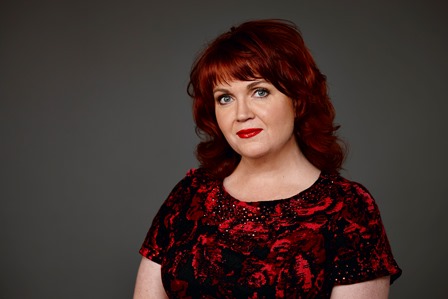Screen NSW CEO Courtney Gibson.
Screen NSW is getting into virtual reality in a big way, with a new app unveiled last week and a VR intensive taking place tomorrow, June 7, at Sydney's Carriageworks.
VR seems to be everywhere – the Sydney Film Festival has programmed its first VR sidebar in 2016, and Vivid Sydney is currently hosting a Björk VR exhibition (also at Carriageworks).
For CEO Courtney Gibson, Screen NSW's 360° Vision app is about spearheading audience as well as industry development.
"The suppliers of both viewing equipment and production equipment [for VR] are now moving out into the marketplace", Gibson told IF.
"That means it's time for us to equip the production sector. But creating the app is as much about developing audiences as it is about developing practitioners."
The agency's push into VR is about "positioning NSW as a hub for virtual reality", Gibson said.
Content will be added to the app on a rolling basis – "some material we have long licenses for, some we only have short licenses for, which means we can keep new stuff coming through it all the time."
"And we can use our social media to get feedback from a wide range of screen practitoners about what they're most attracted to, in order to work out where to take it next."
As for the VR lab, guests will include Rose Troche, director of The L Word, Six Feet Under, Ugly Betty and now at the vanguard of VR practice, as well as Australia's Lynette Wallworth, whose Collisions premiered at Sundance earlier this year and was a revelation to Gibson.
"It was the first really great VR that I saw. What that did to me was blow that idea of the frame and the screen completely out of the water."
"Most of the people in the room tomorrow are going to be people who think in terms of a frame to shoot and in terms of a screen that we watch material on and edit on. As an agency it's about how we support people who are trying to work out how to tell stories with this new medium."
Troche, like Wallworth, is a veteran of Sundance's New Frontier sidebar. One of her acclaimed VR projects is about a date rape, which a user can experience from the POV of both male and female.
The intensive will also explore what Gibson calls "the pointy end of VR: the business end. What does it cost to make? Who's financing it around the world at the moment, and how do the rights and deals work? Because any new space means new contracts in place."
Those new contracts are potentially dangerous, Gibson said, with producers racing to be first without examing deals properly.
"That's not just an issue for the producers who make that deal, but it becomes an issue for everyone else, because those deals become the template for everyone's else contracts in the future."
The lab is also about getting a broad range of practioners involved in VR from the beginning, Gibson said.
"It's a priority for Screen NSW to ensure that right from the start people from underpresented groups are right there swinging in VR so that there's a diversity of stories told and voices heard."
Gibson is keen to avoid the narrowness of something like gaming, "still governed by a white male straight monoculture."
"That's what happens when you don't proactively seek to create opportunities for a diverse range of practitioners. When you look around the room tomorrow, there'll be people from indigenous production, people from culturally and linguistically diverse backgrounds, disabled practitoners."
"We're doing that quite deliberately in order to build a diverse world from the ground up."


